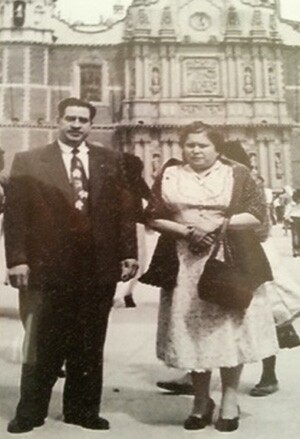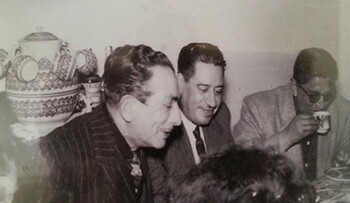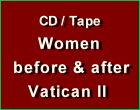Manners, Customs, Clothing
 |
 |
 |
 |
 |
 |
 |
Mexican Customs & Manners in the U.S.
My father and I were sitting down at the table having the lunch that my mother had lovingly prepared for us. I am not exactly sure what the topic of conversation was but at one point my father corrected me because I had used my mother-in-law's first name while describing a situation. I thought for a moment that it was not a big deal, so I asked him why it was wrong.
Before I go much further let me tell you something about my father. He has always been the provider for his family and has worked hard ever since he was a young boy. He is the oldest of nine siblings who grew up in Mexico in modest conditions and often ate only beans for dinner. His formal education took him as far as the seventh grade. This challenged my father, but what he did learn from his parents prepared him for life both in Mexico and the United States, after he established himself here.
To return to the topic of using my mother-in-law's first name, he said the following: “She is older than you and she deserves respect in how you address her, or rather how you refer to her. Calling her by her first name is disrespectful.”
Certainly I did not intend to disrespect my mother-in-law as she has always been very good to me. My father’s point was well taken: Words and titles are important. She is my suegra, mother-in-law in Spanish.
Manners
This small incident caused me to reflect on other customs and manners that my parents had taught me. You see, they grew up in a time and place where these good customs were important to the community and were practiced with great joy and respect. "Manners make life easier," as Dr. Horvat says, and my parents experienced this reality when they received this legacy of good customs from my grandparents.
 I, who was born in the United States, can remember from my earliest days that my mother would tell me not to put my elbows on the table as this was not a proper thing to do. The way she prepared the table for every meal reminded me of old shows I use to watch where all the spoons, forks and knives were placed in a certain order.
I, who was born in the United States, can remember from my earliest days that my mother would tell me not to put my elbows on the table as this was not a proper thing to do. The way she prepared the table for every meal reminded me of old shows I use to watch where all the spoons, forks and knives were placed in a certain order.
As Dr. Horvat correctly pointed out, “Manners and courtesies, customs and conventions were not developed with the notion of making life more difficult for men and women. They had a purpose that was the exact opposite: to make life more amenable in the necessary relationships of existence, and more bearable in the inevitable difficult times. At the very heart of good manners is something so lacking in our days, that is, consideration for others. Good manners came into being not artificially, but based on an authentic concern for the respect of others.”
My parents were instructed by my grandparents with this idea very much in mind. When guests visited our home they would be served first and my mother would make sure they would be satisfied. Proper manners made for a very peaceful and tranquil home.
Now, things are not like they were when my parents were young. They had an advantage that I did not have, they grew up in Mexico. The time period was important but the culture was even more important: it was Catholic. The love for the Catholic Faith translated into respect for one another. I can remember visiting my grandparents in Mexico during holy days such as Christmas and Easter. The care and respect they showed for each other was remarkable. God was always a part of the conversation, from greeting to the departure with the words ‘Adios”! It is the short for the old formula of saying good-bye in Spanish: “Continuemos a Dios louvando” - Let’s keep on honoring God!
The way in which we greeted one another was “hierarchical.” What I mean by this is that the youngest would approach the eldest and would greet him with a hand shake. If the person was new to the gathering, the greeting between the two would go something like this: “Nice to meet you, my name is Francisco Gutierrez, here to serve you.” This would be the way all individuals would introduce themselves if they did not know each other. The good-byes would be given in this fashion: “Thank you for coming, you are always welcome in our home. God bless you.”
 The way in which my brothers and I would say good-bye to our grandparents is something I will always cherish and remember. We thank them for all they did for us, and, finally, we get down on our knees and they give us a parental blessing. Then we kiss their hands. My mother always commend us to La Virgen to protect and watch over us. This is part of being a Catholic. My mother put her faith into action in many various ways. I now understand why manners matter, they are a reflection of our good morals and faith.
The way in which my brothers and I would say good-bye to our grandparents is something I will always cherish and remember. We thank them for all they did for us, and, finally, we get down on our knees and they give us a parental blessing. Then we kiss their hands. My mother always commend us to La Virgen to protect and watch over us. This is part of being a Catholic. My mother put her faith into action in many various ways. I now understand why manners matter, they are a reflection of our good morals and faith.
Thus, as Dr. Horvat so eloquently stated in her article, “life was made easier by good manners and customs.” They truly made our dinners and other events very amenable and memorable. Today's society has a very different way of looking at manners and customs. Even so, I do not have any ill will towards those persons who dislike proper etiquette since they grew up in the “cultural revolution” of the 1960’s, where the order of the day became to do and act the way you want.
"Manners have profound meaning and make life easier and more bearable."
These words are very true. When I incorporate them into my house - I am the father of 14 children - they bring peace to the home. Manners truly reflect the morals of the family and as Catholics we are called upon to reflect Christ’s love to one another.
Viva Cristo Rey y la Virgen de Guadalupe!

Posted July 20, 2013
Before I go much further let me tell you something about my father. He has always been the provider for his family and has worked hard ever since he was a young boy. He is the oldest of nine siblings who grew up in Mexico in modest conditions and often ate only beans for dinner. His formal education took him as far as the seventh grade. This challenged my father, but what he did learn from his parents prepared him for life both in Mexico and the United States, after he established himself here.
To return to the topic of using my mother-in-law's first name, he said the following: “She is older than you and she deserves respect in how you address her, or rather how you refer to her. Calling her by her first name is disrespectful.”
Certainly I did not intend to disrespect my mother-in-law as she has always been very good to me. My father’s point was well taken: Words and titles are important. She is my suegra, mother-in-law in Spanish.
Manners
This small incident caused me to reflect on other customs and manners that my parents had taught me. You see, they grew up in a time and place where these good customs were important to the community and were practiced with great joy and respect. "Manners make life easier," as Dr. Horvat says, and my parents experienced this reality when they received this legacy of good customs from my grandparents.

My grandparents at the original Basilica dedicated to Our Lady of Guadalupe in Mexico City
As Dr. Horvat correctly pointed out, “Manners and courtesies, customs and conventions were not developed with the notion of making life more difficult for men and women. They had a purpose that was the exact opposite: to make life more amenable in the necessary relationships of existence, and more bearable in the inevitable difficult times. At the very heart of good manners is something so lacking in our days, that is, consideration for others. Good manners came into being not artificially, but based on an authentic concern for the respect of others.”
My parents were instructed by my grandparents with this idea very much in mind. When guests visited our home they would be served first and my mother would make sure they would be satisfied. Proper manners made for a very peaceful and tranquil home.
Now, things are not like they were when my parents were young. They had an advantage that I did not have, they grew up in Mexico. The time period was important but the culture was even more important: it was Catholic. The love for the Catholic Faith translated into respect for one another. I can remember visiting my grandparents in Mexico during holy days such as Christmas and Easter. The care and respect they showed for each other was remarkable. God was always a part of the conversation, from greeting to the departure with the words ‘Adios”! It is the short for the old formula of saying good-bye in Spanish: “Continuemos a Dios louvando” - Let’s keep on honoring God!
The way in which we greeted one another was “hierarchical.” What I mean by this is that the youngest would approach the eldest and would greet him with a hand shake. If the person was new to the gathering, the greeting between the two would go something like this: “Nice to meet you, my name is Francisco Gutierrez, here to serve you.” This would be the way all individuals would introduce themselves if they did not know each other. The good-byes would be given in this fashion: “Thank you for coming, you are always welcome in our home. God bless you.”

My Grandfather in the center enjoying a cup of coffee during a birthday celebration
Thus, as Dr. Horvat so eloquently stated in her article, “life was made easier by good manners and customs.” They truly made our dinners and other events very amenable and memorable. Today's society has a very different way of looking at manners and customs. Even so, I do not have any ill will towards those persons who dislike proper etiquette since they grew up in the “cultural revolution” of the 1960’s, where the order of the day became to do and act the way you want.
"Manners have profound meaning and make life easier and more bearable."
These words are very true. When I incorporate them into my house - I am the father of 14 children - they bring peace to the home. Manners truly reflect the morals of the family and as Catholics we are called upon to reflect Christ’s love to one another.
Viva Cristo Rey y la Virgen de Guadalupe!

Posted July 20, 2013
______________________
______________________








